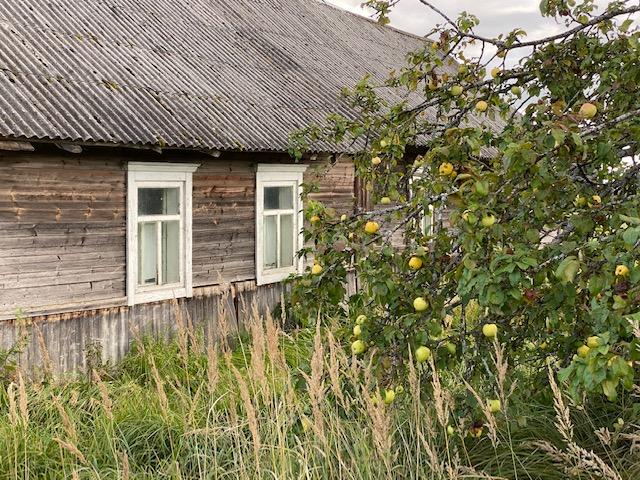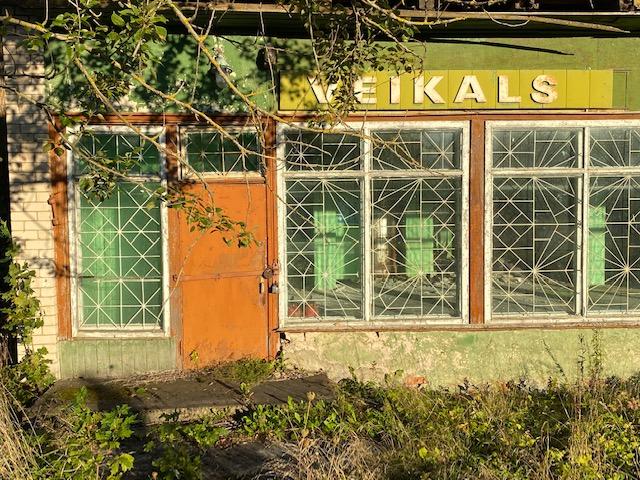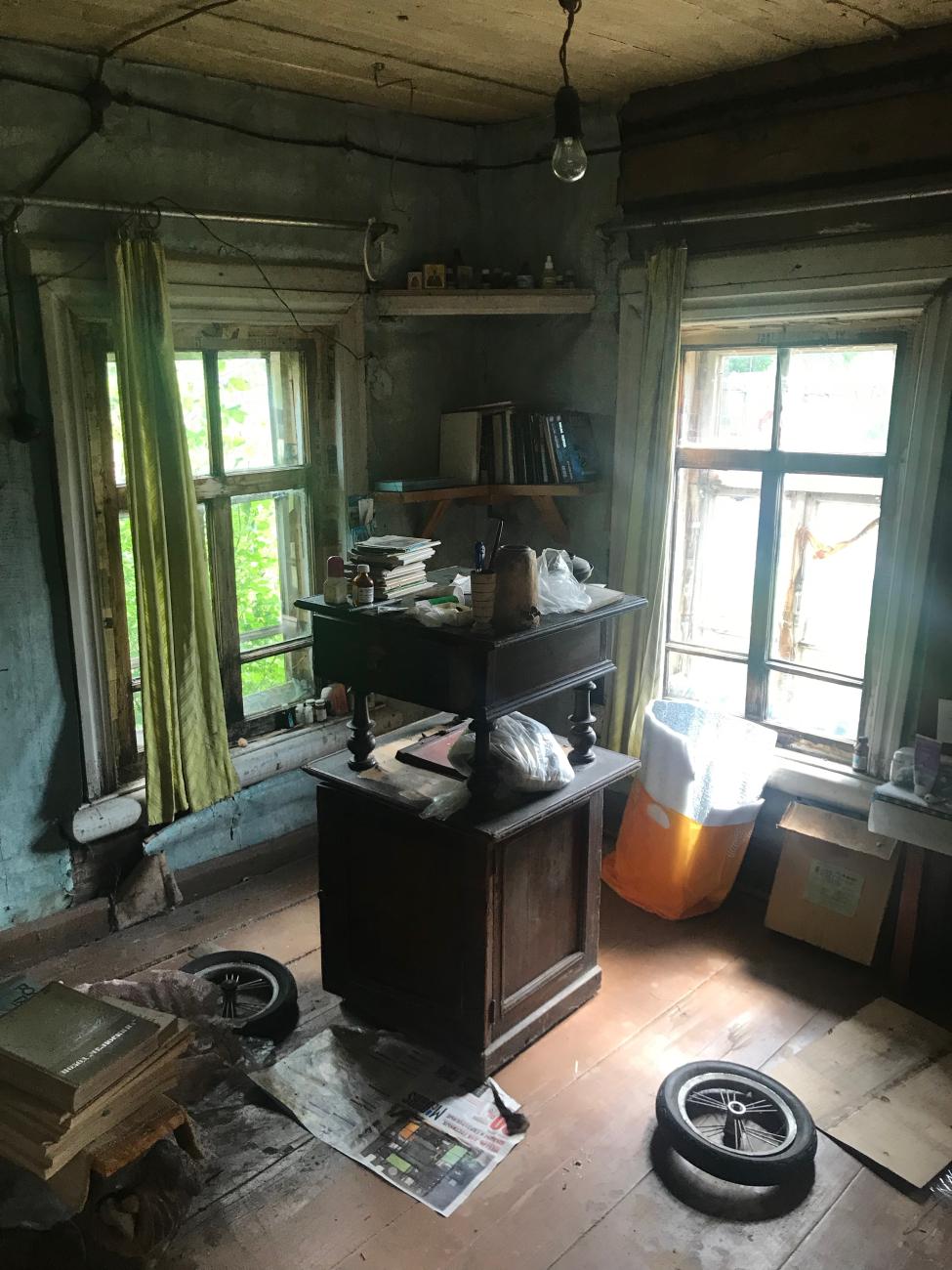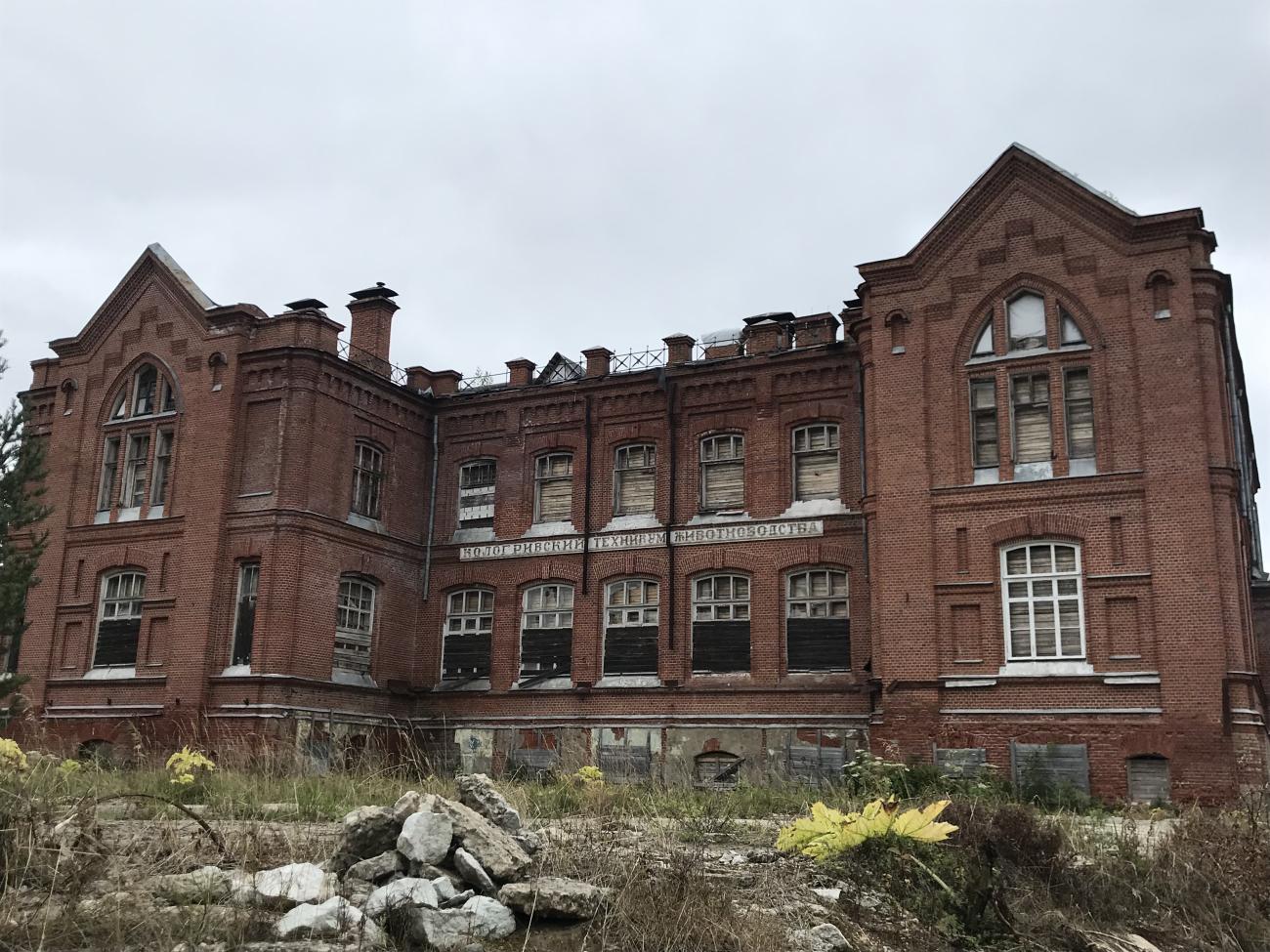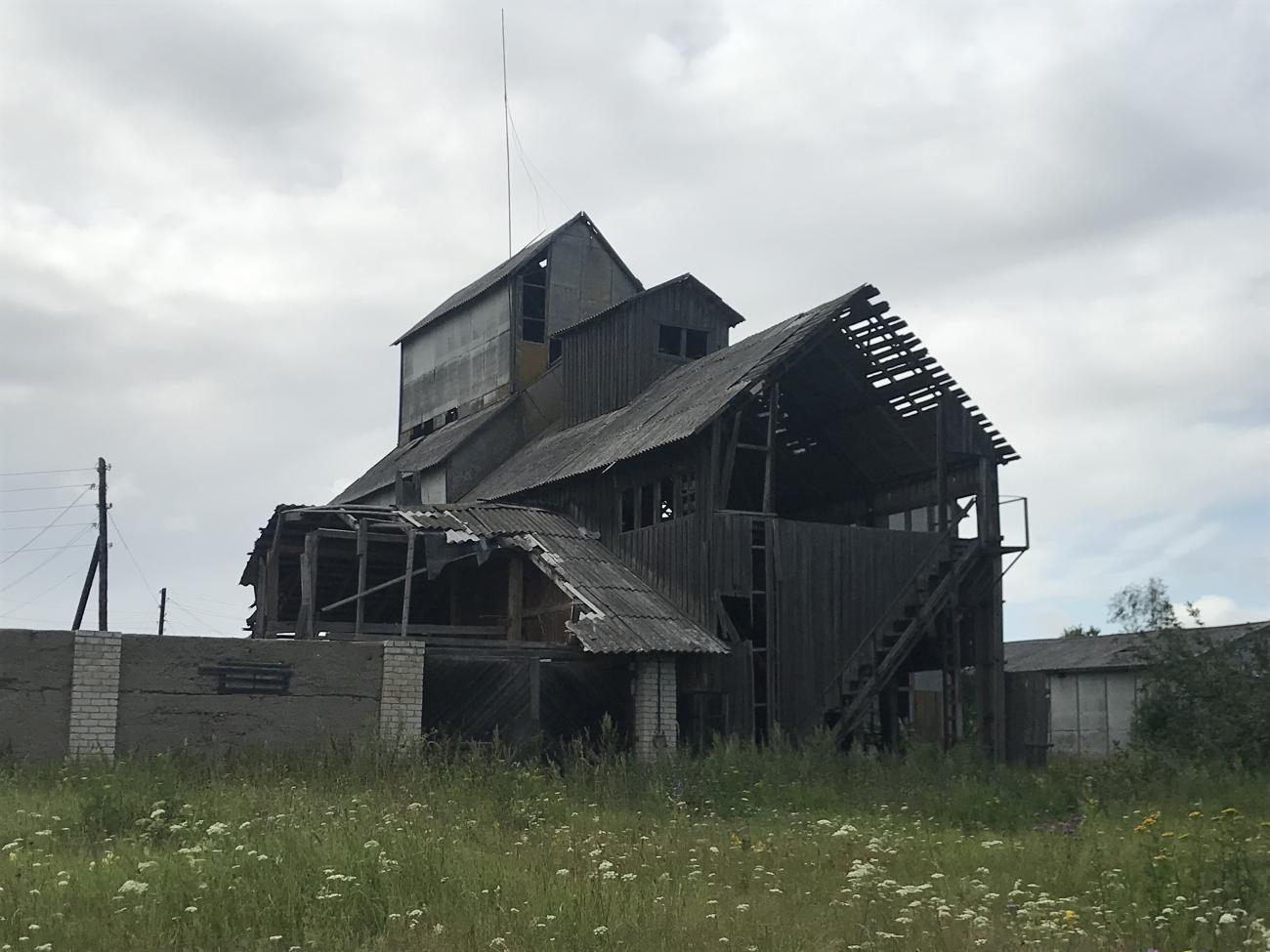RSU Guest Lecturer From Oxford University: Understanding The Space Where We Live
Determined to prove that significant socio-anthropological observations, which are important for a variety of fields, can come from the eastern part of Europe, Dace Dzenovska, an Associate Professor at the University of Oxford, has settled in at Rīga Stradiņš University (RSU) for the upcoming academic year.
A memorandum of cooperation that was signed with the University of Oxford over the summer provides that a part of the project "Emptiness: Living Capitalism and Democracy After (Post)socialism", led by Dace and funded by the European Research Council, finds its home at RSU. This is not only a huge recognition for the social anthropologist herself, but also great news for all Latvian social science students and researchers.

The European Research Council grant is proof of excellence. Up until now, the only researcher who had received it with the backing of a Latvian higher education institution is quantum physicist Andris Ambainis.
Yes, this is an extremely significant grant! It is very generous in terms of funding and time and it will allow me the luxury to devote myself only to research without having to teach any study courses in the next few years. It seems to me that it is a common conception in Latvia that science only means the natural sciences – physics and chemistry – that involve quantitatively measurable achievements, and which make a tangible contribution to the national economy.
The social sciences and humanities, on the other hand, are not so simple: you have to constantly prove why it is important to study how people think and what they do.
This is probably the reason why no Latvian researcher working in the social sciences or humanities has received funding like this - because of a lack of institutional support.
Is this the reason why you have been working outside Latvia for so long?
Yes. Unfortunately, opportunities within the social sciences and humanities in Latvia have so far been much more limited than they are abroad, where the chances of being institutionally supported are bigger. I would not have been able to prepare a competitive project application without financial, administrative and scientific help from consultants at the University of Oxford.
You have now become a guest professor at RSU, however, and RSU has signed a memorandum of cooperation with the University of Oxford and become a project partner. The project has just begun. Please give us an outline of it!
The project will last five years and aims to understand “emptiness” as a new and multifaceted phenomenon that is gradually becoming a permanent component of modern capitalism and modern living space. Researchers have focused on urbanisation, migration and life in megalopolises in recent years. Currently, a large concentration of people only occurs in a relatively small number of megalopolises; in fact, more cities are shrinking rather than growing, especially in Europe. Between the megalopolises there are villages, small towns and urban villages that are gradually emptying, and from which the state and the capital are retreating. But people still live there.
As an anthropologist, I am interested in what we can learn about the world if we study in depth the seemingly familiar, but at the same time new phenomenon of “emptiness”.
What happens to these spaces? What does it mean to live in a place that empties, and how can this be managed? Municipalities in many places need to shift from development planning to planning for emptying, which is difficult to do, because we have all been taught to live with the idea of development as a progressive path to an ever better life and greater prosperity. Emptying creates new challenges that we don't even realise – what should be done, for example, if a house collapses, but the owner can't be found? How should a development plan be written if a population is rapidly declining?
The study will take place in four countries simultaneously – Latvia, Belarus, Ukraine and Russia. Historically, these have been related territories that have developed in different directions, each of them along its own political trajectory. My hope is to build a wider intellectual community around the core of these four countries, because these processes, although different, are taking place in other European countries as well. After hearing about the project, I have received letters from Spain, Portugal, Italy, Poland, Bosnia, Serbia, Bulgaria and other countries. People recognise problems from their own research, or living spaces in the project, and they want to take part in the conversation. Post-Soviet countries are, and will remain the focus of the project, and they will serve as a point of reference, or a basis for further debate.
Would you say that this study is great news not only for research at RSU, but also for students?
Intellectual communities take shape around a specific issue in any structural unit at a university where active research is taking place.
Students are more than welcome to become a part of the intellectual community surrounding this project. This could take the shape of reading of texts together, or thematic seminars that would be organised as an addition to the regular curriculum.
There are also plans to cooperate with the RSU Doctoral School.
The European Research Council supports the best scientists in Europe who have already proven their excellence and have come up with original research applications. What was it that attracted the European Research Council to your project?
I think that it was how innovative the idea was and its methodological approach. The focus must be on a phenomenon that everyone has noticed, but where it is not clear what exactly it is and what is to be done with it. It can be something where it seems to everyone that everything is already clear, but where I argue and prove that it is not. Together with my research partners, we use the term “emptying” not in the sense that there is nothing, but in the sense that radical changes are taking place and that the preceding factors are declining, such as factories in once industrialised Russian cities, but where it is not clear what exactly will replace them.
What methods will be used in the study?
These will primarily be ethnographic methods. Researchers will live on-site for a sustained period of time. These methods may then be complemented by archival work, household surveys, interviews with policy makers, statistical data analysis, data visualisation, mapping and so on. However, the primary method is long-term ethnographic fieldwork and participatory observation. I see this as a crucial approach in a time when results are demanded urgently, also in research. This was particularly observable during the onset of COVID-19 when it felt like we were being told “Here, anthropologists, we have a pandemic – plunge in, do research in one week and give us results!” Of course, it is important to understand what is happening here and now, but this requires other methods.
In a world that is in such a hurry, long-term ethnographic work is in danger of disappearing. It also affects the way in which we understand complex phenomena.
It is important to note that the study, although comparative, is specifically comparative. Traditionally comparison takes place through abstraction where units of comparison are crystallised from historical reality – for example, from a democratic state. An abstract definition is created first and then it is examined whether there is a state, a democratic state, or perhaps a pre-state political community at that location. We in turn, will examine emptiness as an ethnographic phenomenon consisting of specific spatial, material and social phenomena and symbolic concepts, and will transfer this complex phenomenon from one place onto another. To be more precise, we will look at one particular historical phenomenon in relation to other specific historical phenomena, rather than at all such phenomena in relation to an abstract definition of emptiness. Maybe elsewhere a half of the phenomena are the same, but another meaning is attributed to them. We will see how we manage to transfer this complex phenomenon – emptying – to other geographical locations.
I expect some common denominators to be present in all places. For example, the world is currently dominated by financial capitalism where added value is created mainly through financial operations rather than through production. This does not mean that there is no production, but rather that more can be earned by financial operations. This affects the global spatial configuration. It cannot be that any of the places that our project has its sights on has not experienced this. But consequences and reactions can differ.

Is being a social anthropologist from a post-Soviet country an advantage or, on the contrary, a disadvantage?
It can be both. There are places that are considered to be particularly important to social anthropology because the research carried out there has contributed to the development of science. For example, research on kinship has been carried out in Melanesia (Marilyn Strathern), on alternative realities in the Amazon (Eduardo Viveiro de Castro), on political communities in sub-Saharan Africa (Max Gluckman). There are no such associations with Eastern Europe. Over the years, I have noticed that international social science researchers sometimes go to Eastern Europe to confirm what they already know - that we “lag behind” the West in certain not-so-positive ways, that there is nationalism here and that we tend to think collectively. And it's all bad.
I would say that somewhere here the basic task of anthropology is lost – to understand humans in all their complexity, rather than condemn them. There are, for example, people in Piedruja who like Lukashenko. Anthropologists need to understand this, not condemn it at the core, which is difficult to do in today's political context. With this project, I try to prove that observations can come from our region that are important not only for social anthropology, but also for other fields.
What qualities should a social anthropologist possess?
First of all, I would say that you have to be extremely patient – it could be that nothing happens during your field work for a long time, but even then this could provide useful data. An anthropologist must have a non-politicised, radical openness and they must like people.
Of course, you can also do research in an empty village – anthropology is currently moving in a direction where we interact with rocks, fungi, animals and so on, but we must be able to find the link to humans.
Anthropologists are often turned away, but stopping at the first “no” will not get a researcher far. Therefore, in the vein of the Polish master social anthropologist, Bronisław Malinovsky, researchers travel and live on location, delving into the lifestyle of a particular community, or watching global processes play out in a particular place. Undoubtedly methods also need to be renewed, in a changing world, but long-term and in-depth research still has huge importance.
A social anthropologist must also be prepared to hear other people's pain. Today there is a lot of focus on risks! Many parts of the world are turning into places that researchers are advised not to visit. Universities in Western Europe are very concerned about the secondary trauma that a researcher who has, for example, gone to a place where they have come in contact with migration, refugees and violence might experience. Of course, this is not easy. One of my students is currently researching refugees from Eastern Ukraine, and it is difficult for her - everyone wants to talk to her about this painful experience, and she is gradually becoming like a psychotherapist to them. I reassure her that very few people in our region have gone to psychotherapy and so, to some extent, conversations in the kitchen with friends serve this function. An anthropologist must be able to expose themselves to potentially unpleasant situations.
We live in a world where we increasingly protect ourselves and others to such an extent that it seems to me that true anthropology is no longer possible.
Daces Dzenovska's CV in brief
- 2015 to present – Associate Professor of Migration Anthropology at the University of Oxford
- 2009 – University of California, Berkeley, PhD in Social and Cultural Anthropology
- 2002 – New York University, Master's degree in Social Theory
- Former Marie Curie scholarship recipient at the Migration Policy and Public Research Centre of Oxford University
- Research interests: nationalism; liberalism and tolerance; mobility and migration; post-Soviet capitalism; future policy.
Information about the project "Emptiness: Living Capitalism and Democracy After (Post)socialism"
- Funding: 1,929,263 euros
- Duration: from 1 September 2020 to 31 August 2025
- Research focus: Latvia, Belarus, Ukraine and Russia
- Leading Researcher: Dace Dzenovska, Associate Professor at the University of Oxford
Related news
 From idea to prototype in 30 hours: students participate in MedTech Sprint hackathon For Students, Innovation, For RSU Employees, Research
From idea to prototype in 30 hours: students participate in MedTech Sprint hackathon For Students, Innovation, For RSU Employees, Research
